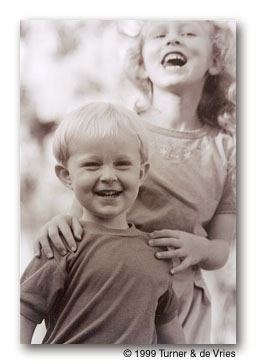Perhaps you find yourself wondering why you and your spouse, or you and your closest friend or cousin are so different yet are so linked together. He watches the news on politics and team sports, you watch primetime in the daytime. He likes joining guilds in online war games, you like playing online scrabble or chess. He speaks in public well, you can't drive a point home without stuttering. These despite the fact that you often enjoy dinners, picnics or road trips together.
Where did we learn to cope with our personal differences? At which point in our childhood did we become adult enough to handle disagreements? More importantly, who trained us to become these agreeable individuals?
The answer, scientists now say, are our siblings. Read on:
 1) Siblings impose a certain permanency in our lives. As this week’s TIME magazine cover story had put it, “our spouses arrive late in our lives, parents eventually leave us.” In a less-than-perfect-world, friends come and go. But, oh, our siblings have a resiliency no one can fathom. From the time we were fighting over who gets the better toy or who receives the worse punishment, to the time when we argue over who gets which heirloom, we had been practicing our social skills with our brothers and sisters. Diplomacy—or the lack of it—is rooted from the household playroom.
1) Siblings impose a certain permanency in our lives. As this week’s TIME magazine cover story had put it, “our spouses arrive late in our lives, parents eventually leave us.” In a less-than-perfect-world, friends come and go. But, oh, our siblings have a resiliency no one can fathom. From the time we were fighting over who gets the better toy or who receives the worse punishment, to the time when we argue over who gets which heirloom, we had been practicing our social skills with our brothers and sisters. Diplomacy—or the lack of it—is rooted from the household playroom.2) Seventy-five percent of fathers and 65 percent of mothers exhibited a preference for one child. This is especially true in multichild households.
“Parents, despite themselves, are programmed to notice the child who seems most worthy of the investment … our primal programming still draws us to the pretty, gifted ones.” (Though I believe that some children really get the better share of attention and affection, this statement still disturbs me as much as it validates my belief.)
Whether or not you’re one of those who get the bigger slice of the cake, there is reason to celebrate. Favorite children often have higher self-esteem, studies say. The less favored child, though he tends to be “sadder and have more self-esteem questions,” adapt well by spinning the situation to his advantage. I know someone who used to nudge his youngest sister to ask their mom for extra TV time because he knew the mom won’t say no to the youngest sister. And why won’t their mom say no? The young girl had a wall full of certificates and trophies. Who, then, is more clever: the sister who had a string of accolades or the brother who knew what advantage he had?
 3) We all have a desire to set ourselves apart from other people—more prominently so when we try to “de-identify” ourselves from our siblings. Even in a family where brothers and sisters follow the footsteps of one another, the phenomenon of “de-identification” still exists.
3) We all have a desire to set ourselves apart from other people—more prominently so when we try to “de-identify” ourselves from our siblings. Even in a family where brothers and sisters follow the footsteps of one another, the phenomenon of “de-identification” still exists.Two brothers, for instance, were born three years apart. They went to the same elementary school, played their GI Joes together, shared a room for the first twelve years of their lives. When it was time for the younger brother to pick which high school to attend, he picked his brother’s. However, their similarities ended there. While the older brother joins tae kwon do and basketball tournaments, the younger brother joined the computer and electronics club. While the older one rallied with his supporters in the student council, the younger brother was sent abroad for math competitions.
Different behaviors, same objective: to prove he's no ordinary guy.
4) Having a sibling of the opposite gender is not a curse but a blessing. If you’re a guy, those little bouts you had with your older sister about how much time she spent inside the bathroom or on the phone may pay its rewards when you’re looking for a date. In general, men who have older sisters are more likely to snag a date than do men who don’t. The same goes for women who have older brothers.
 It’s a matter of communication. Men and women who have older siblings of the opposite sex are able to converse more smoothly.
It’s a matter of communication. Men and women who have older siblings of the opposite sex are able to converse more smoothly.One minute you’re like cats and dogs, the next minute you’re inseparable. At the end of a long school day, there is no place warmer than our homes. Later in our lives, as we face the loss of our parents, friends and partners, we find no place more reassuring than the open arms of our brothers and sisters. And even though it’s mostly thick, we are still there for each other through thick and thin. Such is the nature of siblinghood that we—inevitably—nurture all throughout our lives.
--------------
What's the fondest memory you have with your sibling/s?